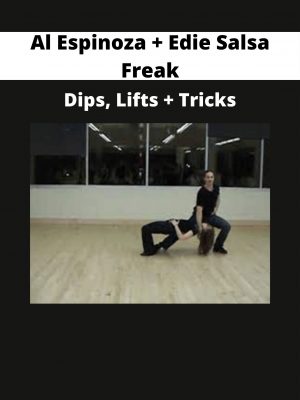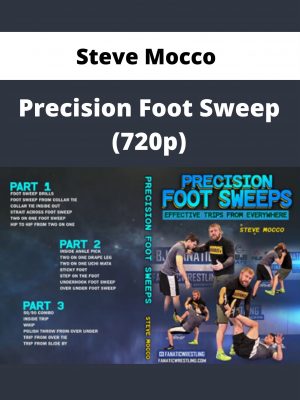Lee Taft – Game like Speed
$97 Original price was: $97.$38Current price is: $38.
Shopping Instructions:
- DISCOUNT 15% : SHOP15
- Product Delivery: Within 1 – 12 hours after purchase.
There is no doubt you need to be training reactively so you can develop “Game Speed” quickness. You can train eye-popping quick
Lee Taft – Game like Speed
Discover How You Can Include Amazing Quickness Drills into Your Training to Drastically Improve Your Game Speed
It’s Like Magic!
There is no doubt you need to be training reactively so you can develop “Game Speed” quickness. You can train eye-popping quick feet with simple patterned agility drills that will force you to cut faster, explode on your first step, and change direction like a cat.
Improve your “Game Speed” with these proven strategies.
What’s Up Athletes!
I am Lee Taft, better known as… “The Speed Guy”. I was given this name because no one understands multi-directional game speed better than me. From my playing days in college to three decades later, I can still cut on a dime and put fear in opponents with my foot speed.
What’s My Secret?
- I always try to create stiffness and stability. This means I want my muscles and joints to rapidly absorb force on every single landing so quickness is the result.
- I always train at game speed. I never “dog it” and simply just go through the motions. I kill the agility drills to improve my skill.
- I perform as much reactive training as possible. This means I compete against partners, a coach’s signals, or reaction balls… as an example. I see it, react to it, and attack it!
- I use resisted and non-resisted impulse training. This type of training forces me to crush my speed by simulating forces and angles I need to cut with laser-like speed. I get tons of reps in seconds!
So, how do you gain “Game Like Speed”?
Game Like Speed
This product can be a standalone training tool, or you can add it to your current speed training program.
THE KEY TO GAME-SPEED AND QUICKNESS IS TO BE ABLE TO INSTANTLY PLANT YOUR FOOT AND REACCELERATE IN A DIFFERENT DIRECTION WITH NO HESITATION
For decades, my tools of choice have been the same. I have had a lot of success with the Agility Ladder, the Low Box and of course with a 1/2 inch to a ¾ inch Superband.
Why the Agility Ladder?
- When I put my athletes into a patterned repeatable drill, I want them to elicit a quick response off the ground. I do this by using a tool that allows the athletes to stay stationary or move within a confined area. This allows me, as their coach, to control the movements without the athlete getting away from me.
- The Ladder allows you to have a distinct distance and boundary to stay within. This creates a safe and effective space to try “reactive quickness”.
Why the Low Box?
- When an athlete reacts to an opponent of the movement of the ball, an an instantaneous change of direction must occur. The outside leg must be the plant leg. The low box allows the athlete to plant the outside leg while unweighting the inside leg. Just the way it occurs in real-time game-speed.
- It is important to have a low box roughly 4 inches high. Anything over that (up to 6 inches on occasion) disturbs the normal flexion mechanics.
Why the Superband?
- The superband is what allows the magic to occur. The superband creates an artificial momentum to you. It would be as if you had shuffled hard for 5 yards and had to change directions.
- By using the superband, ladder, and low box I can recreate mass and momentum forces similar to an actual lateral plant or cut.
With all three of the tools together the mass and momentum forces are created. The reacceleration emphasis is dialed in, and the reactive quickness off the ground is spot on.
By using this strategy, we can get tons of reps is a small area and a very short time. HOME RUN!
Why use the Ladder Aid in Creating Stiffness?
- The ladder is a perfect tool to safely and progressively build stiffness training.
- It allows me to keep my athletes in a confined area so I can coach and teach them.
- My athletes know their boundaries. They can’t get carried away and put themselves at risk.
- Using the ladder and my targeted cuing, I can get the athletes to “stick” the landings. With this method, the muscles learn to manage forces and the joints stabilize.
- This sets the athletes up for a successful workout.
What are the Goals?
- Create proper and safe force application angles.
- Allow for instance reacceleration in a new direction.
- Teach athletes to “Stay in the Tunnel” (stay athletically low enough to accomplish task).
- Reduce overall training time and get quicker results.
- Allow for more reps to teach from and improve joint angles to produce and reduce force.
- Flat out improve quickness!
If you are looking for a quick, simple and effective way to improve your athletes’ quickness when you have limited time and space, this is your resource.
WHO IS THIS FOR?
-
- I have used this approach with 7-year olds to professional athletes.
-
- Athletes who need to move laterally quicker.
-
- Teams with limited space and time but DESPERATELY need quickness.
-
- Individual athletes like tennis players who live and die by their ability move laterally
-
- Court and field sport athletes looking to dominate with quickness on both ends of the court or field.
- Coaches looking for speed training drills they can easily add to their current program.
- Physical Therapists looking to ease athletes back into live game-speed cutting and change of direction.
IS THIS SAFE?
I have personally used these speed training drills with various groups. From youngsters, to injured athletes returning to play, overweight athletes, weak athletes, and many others.
The progression I outline make it so easy to use with any athletes. It will give your athletes confidence to PUT THEIR FOOT IN THE GROUND AND CUT WITH CONFIDENCE AND QUICKNESS.
DO THE ATHLETES LIKE IT?
This might be the most effective form of speed training drills I use other than tag and chase games to fire up my athletes to want to train. They LOVE IT!
I have competitions they can take part in and standards athletes can try to meet.
Best of all, this form of training produces quick results so the athletes get behind it 100%.
If there has ever been a product that coaches, athletes, physical therapists, strength coaches, and fitness trainers must have in their toolbox that can improve your current program…it is Game Like Speed.
Related products
Other Courses
Other Courses
Other Courses
Other Courses
Other Courses
Other Courses
Other Courses
Other Courses












